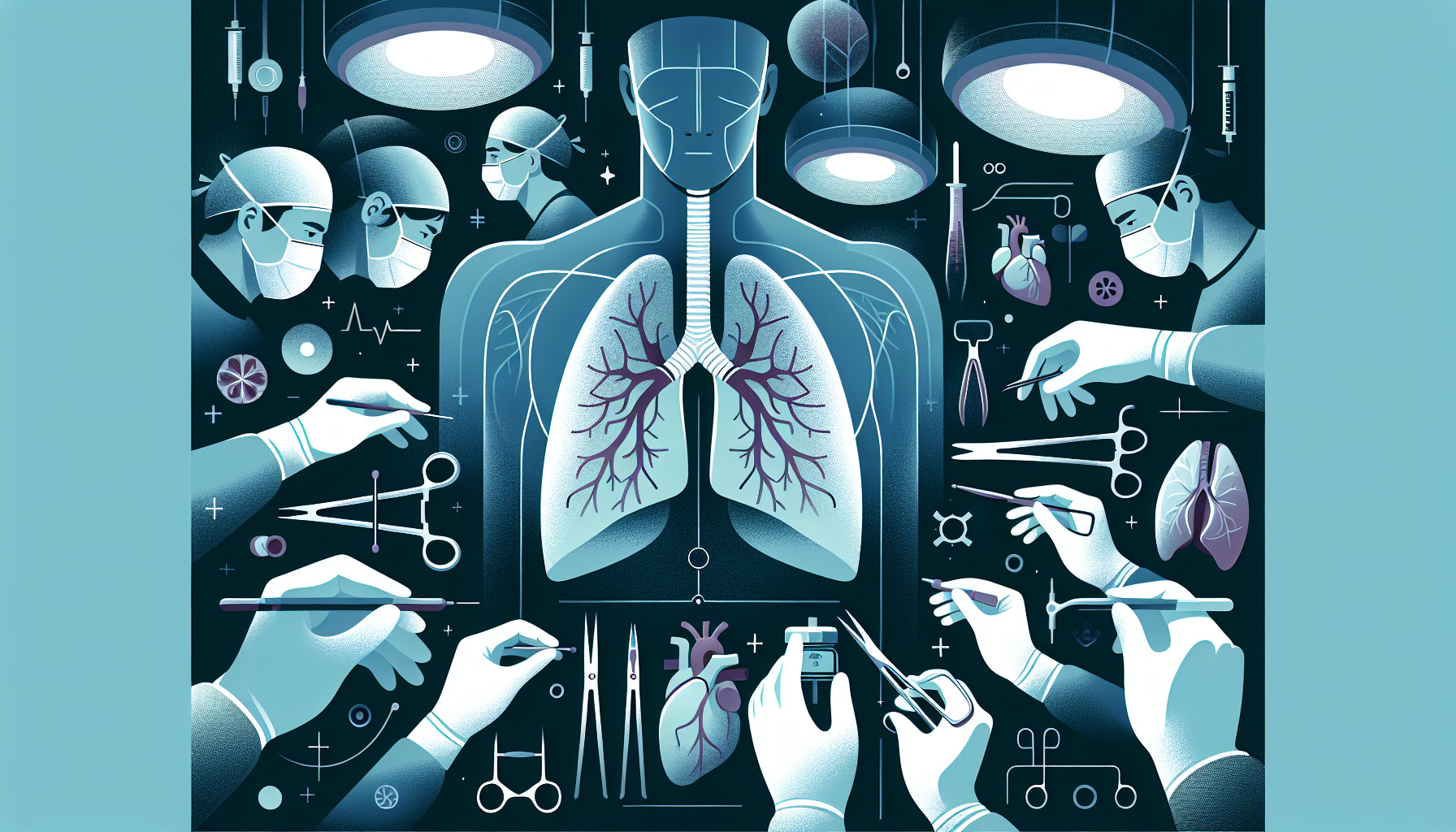Our Summary
In simplified terms, this research was carried out in Japan to understand the reaction of the body’s immune system following a lung transplant. This is done by testing for anti-human leukocyte antigen (HLA) antibodies. These antibodies can cause problems by attacking the transplanted organ, as it’s seen as a foreign body.
The study was done on patients who received lung transplants at Tohoku University Hospital between 2000 and 2020. Out of 93 patients, 23 tested positive for anti-HLA antibodies, with more positive results found in patients who had more recent transplants compared to older ones. A small number of patients had donor-specific antibodies (DSA), which are antibodies that specifically attack the transplanted organ.
Compared to previous reports from the US and Europe, fewer patients in this study tested positive for anti-HLA antibodies. However, it is not yet clear if having these antibodies might affect the long-term survival of the transplant or lead to chronic lung allograft dysfunction (CLAD), a complication that can occur after lung transplantation. This study sets the groundwork for further research into this topic in the Japanese population.
FAQs
- What was the main purpose of the lung transplant research carried out in Japan?
- What are anti-human leukocyte antigen (HLA) antibodies and why are they significant in lung transplants?
- Does the presence of anti-HLA antibodies affect the long-term survival of the lung transplant or lead to chronic lung allograft dysfunction (CLAD)?
Doctor’s Tip
A doctor might tell a patient about lung transplant that it is important to closely follow their medication regimen to prevent rejection of the transplanted lung. Additionally, they may advise the patient to avoid exposure to tobacco smoke and other lung irritants to protect the new lung. Regular follow-up appointments with the transplant team are essential to monitor for any signs of rejection or complications.
Suitable For
Patients who are typically recommended for a lung transplant are those who have end-stage lung disease, such as cystic fibrosis, chronic obstructive pulmonary disease (COPD), pulmonary fibrosis, or pulmonary hypertension, and have not responded well to other treatments. These patients often have severe difficulty breathing and reduced quality of life.
Additionally, patients who are relatively young and otherwise healthy are preferred candidates for lung transplantation, as they are more likely to have better outcomes post-transplant. Patients with certain medical conditions, such as active infections, cancer, or severe heart disease, may not be suitable candidates for a lung transplant.
Overall, the decision to recommend a lung transplant is made on a case-by-case basis by a multidisciplinary team of healthcare providers, taking into consideration the patient’s overall health, severity of their lung disease, and likelihood of success with a transplant.
Timeline
Before lung transplant:
- Patient is identified as a candidate for lung transplant due to severe lung disease.
- Patient undergoes extensive evaluation to determine eligibility for transplant, including physical exams, blood tests, imaging studies, and psychological evaluations.
- Patient is placed on the transplant waiting list and waits for a suitable donor match.
- Once a donor is found, patient undergoes surgery to receive the new lung(s).
After lung transplant:
- Patient is closely monitored in the hospital for signs of rejection or complications.
- Patient takes immunosuppressant medications to prevent rejection of the new lung(s).
- Patient undergoes regular follow-up appointments and testing to monitor the function of the transplanted lung(s).
- Patient may experience complications such as infections, rejection episodes, or side effects from medications.
- Long-term survival and quality of life are monitored, with the goal of preventing chronic lung allograft dysfunction (CLAD).
- Research is ongoing to understand the immune response to the transplant and improve outcomes for lung transplant patients.
What to Ask Your Doctor
Some questions a patient should ask their doctor about lung transplant and the immune system reaction include:
- What are anti-HLA antibodies and how do they affect the body’s immune response to a lung transplant?
- What is the significance of testing positive for anti-HLA antibodies after a lung transplant?
- How common is it for patients to develop anti-HLA antibodies after a lung transplant?
- What are donor-specific antibodies (DSA) and how do they impact the success of a lung transplant?
- Is there a risk of rejection or complications if a patient tests positive for anti-HLA antibodies or DSA?
- What steps can be taken to monitor and manage the presence of anti-HLA antibodies in patients who have undergone a lung transplant?
- Are there any specific treatments or medications that can help prevent the development of anti-HLA antibodies post-transplant?
- How does the prevalence of anti-HLA antibodies in the Japanese population compare to other regions, and what implications does this have for long-term outcomes following a lung transplant?
- What further research is needed to better understand the role of anti-HLA antibodies in lung transplantation and their impact on patient outcomes?
Reference
Authors: Kumata S, Hirama T, Watanabe Y, Oishi H, Niikawa H, Akiba M, Tikkanen J, Okada Y. Journal: BMC Pulm Med. 2020 Oct 2;20(1):256. doi: 10.1186/s12890-020-01299-0. PMID: 33008353
